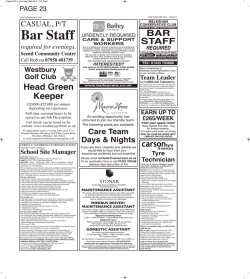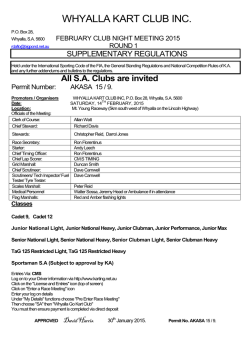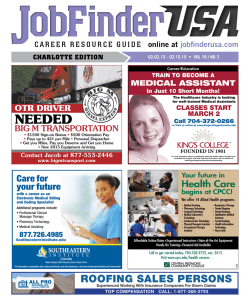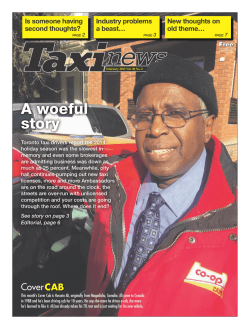
About - unfare
UNFARE The Hidden Cost of Ridesharing Services a documentary film From San Francisco origins, “ridesharing” services have grown exponentially in the past five years. Customers love the convenience of booking and paying for transportation with their smartphones. But what is the true price? UNFARE is a documentary feature about ridesharing applications such as Uber, Lyft, and Sidecar. UNFARE will feature individual drivers, taxi and ridesharing company industry leaders, policymakers, legislators, regulators, litigants, and customers.. Exploring the economic and social consequences of ridesharing, the film questions whether unregulated ridesharing services have a HIDDEN HUMAN COST. Understanding the Issues of So-Called “Ridesharing” Apps Unregulated, these companies pose a serious threat to public safety. Why? For starters, ridesharing application companies use mostly amateur drivers who are not adequately insured. Their lack of full insurance coverage could result in uncompensated pain and suffering. These amateur drivers are not subject to the same background screening as taxi drivers, whose fingerprints are run through police and FBI databases. Equally concerning, these amateur drivers are not required to pass any drug tests before they start picking up passengers. The most infamous insurance loophole involved a 6-year-old girl killed by an UberX driver. Uber claimed her death was not the company’s responsibility and noted that its insurance did not cover drivers without a passenger in the vehicle, since the driver was allegedly trolling for fares at the time. A Lyft spokesperson confirmed its insurance contained an identical gap. INSURANCE ISSUES Imagine you’re a ridesharing driver and you strike a pedestrian while you have the ridesharing app open. Do you close the app and risk losing your personal insurance or do you keep the app open and risk losing your job? Your personal insurance carrier will cancel your policy if they discover you’ve been driving commercially—but first they have to find out. Meanwhile, uberX or Lyft will almost certainly “deactivate” you if you cause a costly accident. Most drivers would rather take their chances with losing their private insurance than almost certainly lose their job. Public officials are already taking notice of this looming insurance fraud. Personal auto policies do not allow drivers to use their vehicles commercially. Consumer Reports recently warned: “Don't risk your car insurance by operating your vehicle as a part-time taxi.” Insurance companies have stated they will cancel the policies of such drivers . A new umbrella policy annouced by Uber and Lyft still does not cover the ridesharing driver if he causes the accident. In this case, the driver would have to rely on his own health insurance to cover his medical costs. Cheaper Background Checks Put Ridesharing Passengers at Greater Risk BACKGROUND CHECKS In most major cities in the United States, taxicab drivers are required to purchase background checks conducted by law enforcement agencies such as police departments and the FBI. These background checks include fingerprinting, nationwide searches and automatic updates for new crimes. At least two convicted felons have been discovered driving for the uberX ridesharing service. In the first case, an uberX driver facing a second felony conviction allegedly assaulted a passenger. In a second case, the Chicago Tribune discovered a convicted felon driving for uberX. The District Attorneys of San Francisco and Los Angeles have filed lawsuits against Uber for alleged misrepresentations to the public about its process for vetting drivers. Ridesharing companies deny they are providing for-hire transportation—which has been subject to oversight for nearly 100 years. By avoiding regulation, ridesharing companies cut their costs, thereby increasing their profits at the expense of public safety. For example, some choose cheaper third-party background checks which do not automatically inform the company when an active driver is arrested. This is just one way in which ridesharing companies directly impact public safety. Community Taxi Service Endangered by Ridesharing TAXI COMPANIES Based on ridesharing companies’ promises of untold wealth as a ridesharing driver, many drivers are abandoning their positions as licensed taxi drivers. Because ridesharing companies place an unlimited (and unregulated) number of vehicles on the road, drivers for regulated taxicab companies are earning less. As a result, taxicab companies that provide service to all areas of a city, to the disabled, and to all customers regardless of their income level, are unable to staff their vehicles with drivers, and taxis sit idle.. The Frightening Fine Print in Uber’s Terms and Conditions “The company... does not intend to provide transportation services or act in any way as a transportation carrier, and has no responsibility or liability for any transportation services provided to you...” “...you agree that you shall defend, indemnify and hold the Company, its licensors and each such party’s parent organizations, subsidiaries, affiliates, officers, directors, Users, employees, attorneys and agents harmless from and against any and all claims, costs, damages, losses, liabilities and expenses” “You acknowledge and agree that you and Company are each waiving the right to a trial by jury or to participate as a plaintiff...in any purported class action or representative proceeding.” “You may be exposed to transportation that is potentially dangerous, offensive, harmful to minors, unsafe or otherwise objectionable, and... you use the application and the service at your own risk.” SURGING PRICES Some ridesharing services use so-called “surge pricing” for their services. This means customers are charged extraordinary amounts during “peak” demand. Without regulation, ridesharing companies can charge people more when passengers are in dire need or distress— even during natural disasters. For this reason, the price of a fare is one of the oldest taxi regulations on the books. DRIVERS Ridesharing companies lure their drivers by promising that earnings will equal more than $70,000 a year. Actual full-time drivers make far less than that when the cost of a vehicle, its maintenance and gas, and taxes are factored in. Drivers struggle to earn a living, and many don't even make Californias' mandated minimum hourly wage. In addition, some ridesharing companies have even promoted high-interest vehicle loans to further indenture the drivers. As independent contractors, drivers work without health insurance or worker's compensation coverage in the event of disability so these costs are shifted to society at large. THE LEADERSHIP Travis Kalanick - CEO and founder of Uber has been alternately lionized and vilified for his "shoot first, ask questions later" approach to running the world's largest ridesharing company. Though Uber was recently valued at $40 billion, the company faces litigation in multiple jurisdictions for claims ranging from wrongful death to unfair business practices. Under Kalanick's leadership, the company has repeatedly disavowed responsibility to regulators and consumers. These companies fight tooth and claw against oversight and regulation. We believe that in a modern capitalist society, corporate accountability is a basic human right . We’re here to make it happen. UNFARE
© Copyright 2026



